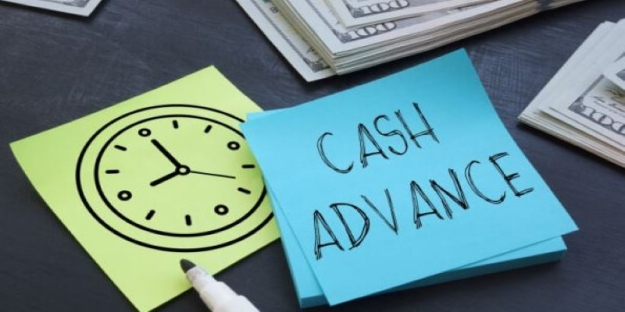Tips To Avoid Paying Interest On Credit Cards
Do you ever look at your credit card bill and wonder why the balance never seems to shrink? The culprit is often interest charges quietly piling up. The good news: There are practical ways to sidestep them altogether. Here's a breakdown of simple, realistic strategies you can start using right now to keep your hard-earned money in your pocket instead of the bank's.
Pay Your Balance In Full Every Month
The simplest way to avoid interest? Clear your balance before the due date. Most credit cards offer a grace period—usually 21 to 25 days—where no interest is charged if you pay the full statement balance.
Example: If your billing cycle ends on the 10th and payment is due on the 5th of the following month, pay the full balance by that date. Even paying one day late can trigger interest on every purchase made during the billing cycle.
Tip: Set up automatic payments for the complete statement amount so you never miss the window.
Understand The Grace Period
Many people assume interest starts right after a purchase—it doesn’t if you pay in full. The grace period is a hidden money-saver, but it only applies if you aren’t carrying a balance from the previous month. Once you carry over even a small amount, the grace period disappears and interest begins accruing immediately on new purchases.
Example:
- Month 1: You pay your $800 statement balance in full—grace period applies.
- Month 2: You leave $200 unpaid—no grace period, and interest starts from the purchase date on all new spending.
Avoid Cash Advances
Credit card companies love cash advances because they earn instant interest—no grace period, no exceptions. You’ll also pay a fee, often around 3% to 5% of the amount withdrawn.

Example: Withdrawing $200 could cost you $10 upfront in fees, plus interest starting the same day. Instead, use your debit card for cash withdrawals to avoid these charges entirely.
Make Multiple Payments During The Month
Paying more often than once a month can help reduce the average daily balance, which is how most cards calculate interest. Even if you can't pay the full amount early, partial payments throughout the month cut down on how much interest you might owe if you can't pay in full later.
Example:
- Spend $1,000 in a month
- Pay $500 in two weeks
- Your average balance is much lower, reducing potential interest
Track Your Spending In Real Time
Overspending is the main reason balances carry over and interest charges appear. Use your bank's mobile app to check your current balance regularly. Some apps let you set spending alerts when you're nearing a limit you set yourself.
A quick check-in every week makes it less likely you’ll get a surprise bill you can’t pay off completely.
Consider A 0% APR Introductory Offer—With Caution.
Some cards offer an interest-free period for purchases or balance transfers, sometimes lasting up to 18 months. These offers can be a lifesaver if used correctly.
Rules to follow:
- Only use the card for planned purchases you know you can repay before the intro period ends.
- Mark the end date on your calendar to avoid a sudden high-interest bill.
- Avoid using the card for cash advances or purchases not included in the promo.
Always Pay More Than The Minimum
Paying only the minimum keeps your account in good standing, but it also guarantees interest charges. A $1,000 balance at 18% APR could take years to pay off if you stick to minimum payments, and cost hundreds of extra dollars in interest.
Paying even $50 or $100 over the minimum can dramatically cut repayment time and total interest.
Time Large Purchases Carefully
If you need to make a big purchase, consider the timing of your billing cycle. Buying right after your statement closes gives you the most extended period before payment is due—often up to 50 days with the grace period.
Example: Statement closes on the 10th, payment is due the 5th of the following month. If you buy on the 11th, you'll have almost two full months to pay it off interest-free.
Avoid Late Payments At All Costs
A late payment won’t just cost you a fee—it can trigger a penalty APR, which can be over 25%. This higher rate can apply to both existing and new balances.
Set reminders a few days before the due date, or better yet, schedule automatic payments for at least the minimum amount to avoid penalties. Then make manual payments for the rest.
Use Balance Transfers Strategically
If you already have a high-interest balance, transferring it to a 0% APR balance transfer card can give you Breathing room. Watch for:
- Transfer fees (often 3%–5%)
- The length of the promotional period
- No new spending on the card unless you can pay it off in full
Example: Moving $3,000 from a 20% APR card to a 0% APR card for 12 months could save you hundreds—if you clear it before the promo ends.
Negotiate A Lower Interest Rate
Credit card companies can lower your APR if you have a strong payment history. A quick call to customer service with a polite request can work, especially if you mention that you've received lower offers elsewhere.

A lower APR doesn’t directly avoid interest, but it reduces the amount you pay if you do carry a balance.
Keep Emergency Funds Separate
One reason people use credit cards and end up paying interest is for unexpected expenses. Building an emergency fund, even a small one, means you can pay your bills in full rather than carrying debt.
Start with $500 set aside, then work toward covering three to six months of expenses.
Monitor Your Statements For Errors
Interest charges sometimes appear due to processing mistakes, especially if payments weren’t applied correctly. Check each statement line by line. If you see interest when you paid on time in full, call your issuer immediately—many will reverse the charge if it’s an error.
Break The Habit Of “Revolving”
Carrying a balance month to month (revolving) is how banks make money. Even if it’s just $50 left unpaid, interest will apply. The mental shift from “I’ll pay most of it” to “I’ll pay all of it” is one of the most effective tools you can use to avoid these charges.
How To Keep Interest At Zero?
Avoiding credit card interest isn't about never using your card—it's about using it smartly. Pay in full, track spending closely, avoid cash advances, and make payments before the due date. By combining these with good timing for purchases and innovative use of promotional offers, you can enjoy the convenience and rewards of credit cards without paying extra to the bank.